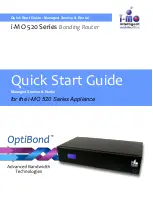
14
HELPFUL TOOLS
•
1/8
″
Allen wrench (31) (included)
•
Phillips screwdriver (not included)
•
Straight edge (not included)
•
Small-sized adjustable wrench (not included)
NOTE:
The fences must
NOT
be installed on the router
table for the following procedures.
PRELIMINARY INSTALLATION OF THE
ROUTER MOUNTING PLATE (Figs. 7A–7C)
1. Completely thread a #10-32 ESNA stop nut (24)
onto each of the eight #10-32 x 3/4
″
countersunk
socket-head screws (28) as shown in Fig. 7A. The
orientation of the stop nut on the screw must be as
shown in Fig. 7A.
NOTE:
It will be helpful to use the included Allen
wrench and an adjustable wrench because the nut
has tight-fitting threads.
2. Place the eight assembled screws and nuts into
the eight hex-shaped pockets in the recess on the
tabletop as shown in Fig. 7B.
The screw threads are to be inserted into the
holes at the bottom of the pockets.
3. Place the router mounting plate into the opening
in the tabletop so that it rests on the heads of the
screws as shown in Fig. 7B.
4. Position a straight edge or level across the mounting
plate as shown in Fig. 7C. The straight edge must
be long enough to extend completely over the
opening in the router tabletop.
5. Insert the Allen wrench through the eight round
holes in the mounting plate, engaging the hex socket
in the screw heads (Fig. 7C).
6. Raise and lower the mounting plate by turning the
screws until the mounting plate is level and flush
with the top of the router table.
7. Remove the mounting plate from the tabletop.
NOTE:
It may be necessary to make slight adjustments
after final installation of the router mounting plate.
FIG. 7A
INSTALLING THE ROUTER MOUNTING PLATE
STRAIGHT EDGE
1/8
″″
ALLEN
WRENCH (31)
FIG. 7B
FIG. 7C
Router Table Assembly
28
24















































